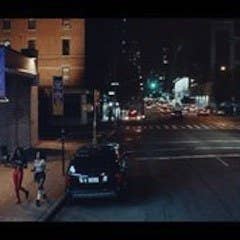This is a still image from Avicii's 2013 video for "You Make Me."

This is the same image from the same video. Notice any difference?

This is what a company named Mirriad calls "native in-video advertising," and under a new deal with Universal Music Group it will be added to videos from certain artists on the label.
Research shows that brands get an 8% lift in awareness and intent to purchase from people who are exposed to them through music videos.
"Plainly stated, music video product placements work," Nielsen said in an April study titled, 'Behind The Music (Video): How Important Are Videos To Artists And Brands."
Here's another scene from Avicii's "You Make Me."

And here's the altered version.

The new deal, between Universal, MIrriad, and advertising giant Havas, covers all music videos made by Universal artists past and present (and likely future). The idea is to leverage the massive popularity of music video streaming to create additional revenue for artists and open a new avenue for advertisers to reach specific audiences.
According to figures released by the Recording Industry Association of America, 7.8 million people now subscribe to a music streaming service. Music streaming revenue — which includes subscriber fees to on-demand services like Pandora as well as SIrius XM satellite radio, and advertising on those platforms along with video sites such as YouTube and Vevo — totaled $859 million for the first half of 2014, a jump of 28%.
Streaming accounted for 27% of the music industry's $3.2 billion in retail sales through June, according to RIAA data. That's $3.2 billion for the entire music industry. Over the last decade, music industry revenue has declined by more than a third, from almost $12 billion in 2003 to just over $7 billion last year. Total industry revenue is on track for another annual decline in 2014 based on figures for the year's first half.
Music videos are among the web's most popular content, and have consistently ranked as a top category on YouTube and other video streaming services — of the 118 billion total streams analyzed in a 2014 report by the music industry's global trade group, IFPI, 57.1 billion, or just less than half, were from music videos. Avicii's "You Make Me" video, for instance, has more than 45 million views on Vevo. The video for "Rocketeer," from Far East Movement, another Universal act participating in the deal, has more than 47 million views on Vevo.
Labels and artists for years have been scrambling to find ways to plug the leaks in their lost revenue. Corporate sponsorship in music videos is as old as music videos, from product placement to commercial tie-ins to pre-roll ads and everything in between.
Usually, these deals are done at the artist and individual brand level. This represents the first comprehensive, label-wide deal done in conjunction with a global advertising agency.
Lucian Grainge, Univerisal's CEO, said the deal allows artists "additional opportunities to generate revenue from their music videos."


Campaigns must be approved by the artist, label, and brand. And only videos from artists who have agreed to participate in the deal will be considered for a campaign. In addition to Avicii and Far East Movement, a Universal representative said American Authors, Vanessa Carlton and several dozen others have already signed on. Havas's clients include fashion house LVMH, Coke, and LG, among others.
For now, campaigns will only run on videos hosted on the Vevo website and mobile app (Vevo is co-owned by Universal). It will roll out to YouTube and other video platforms over time.
Not everyone is a fan of Mirriad's technology.
Stephen Colbert took the company on in a segment, ripping apart the idea of retroactive product placement even though "they could soon be inserting advertisements into my old shows."
